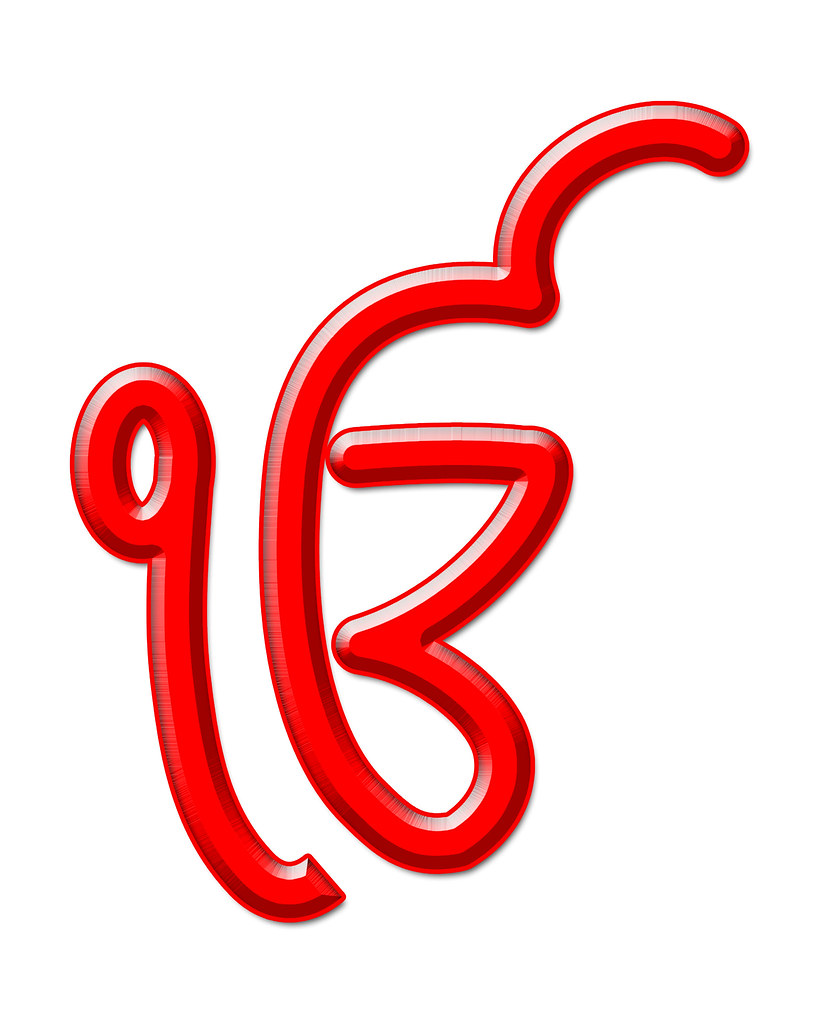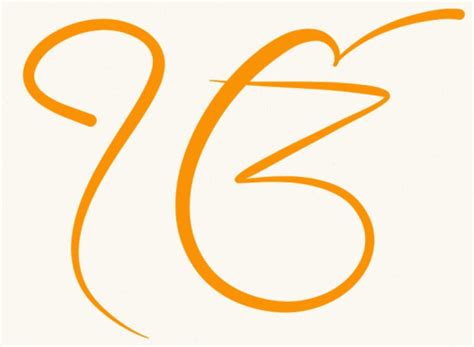
185) Ek Omkar is the Transcendent Lord of entire creation, who existed before the creation and who alone will survive the creation. The Sikhs mate on God as Ek-Omkar, and not in any other way like worship of idols “Rām Nām Jap Ek-Omkar". The unmanifest, God in power, the holy word, the primal manifestation of Godhead by which and in which all live, move and have their being and by which all find a way back to Absolute God. It is used at the beginning of prayers and holy recitations, and also at the beginning of writing respectful salutations. "Ek-Omkār / Ik-Omkār / Ekankār It is from the Sanskrit word Omkar. Encyclopaedia of Sikh Religion and Culture. ^ Dogra, Ramesh Chander, and Gobind Singh Mansukhani.Merriam-Webster's Encyclopedia of World Religions. Archived from the original on 25 July 2012.

Oankar corresponds to the Sanskrit term Om.Guru Nanak, the founder of the Sikh tradition, wrote a long composition entitled "Oankar", in which he attributed the origin and sense of speech to the Divinity, who is thus the "Om Maker The Sikh View on Happiness Guru Arjan's Sukhmani.

That is, the numeral '1' affirms that the Supreme Being is one without a second, the source as well as the goal of all that exists. "By beginning with 'One,' Guru Nanak emphasizes the singularity of the Divine. Ramakali Dakkhani, Adi Granth 929-930, Translated by Pashaura Singh Pashaura Singh writes that "the meaning of Oankar in the Sikh tradition is quite different in certain respects from the various interpretations of this word in the Indian philosophical traditions", and the Sikhs "rather view Oankar as pointing to the distinctively Sikh theological emphasis on the ineffable quality of God, who is described as 'the Person beyond time,' the Eternal One, or 'the One without form'." Onkar is, according to Wazir Singh, a "variation of Om (Aum) of the ancient Indian scriptures (with a slight change in its orthography), implying the seed-force that evolves as the universe." Guru Nanak wrote a poem entitled Oankar in which, states Doniger, he "attributed the origin and sense of speech to the Divinity, who is thus the Om-maker". Nevertheless, Sikhs give it an entirely different meaning. Etymologically, the word onkar denotes the sacred sound Om or the Absolute in a number of Indian religions. Īccording to Wendy Doniger, the phrase is a compound of ik ("one" in Punjabi) and onkar, canonically understood in Sikhism to refer to "absolute monotheistic unity of God".

Ik Onkar is the statement of oneness in Sikhism, that is 'there is one God'. Ik Onkar has a distinct spelling in the Gurmukhi script and the phrase is found in many Sikh religious scriptures and inscribed in places of worship such as gurdwaras. Ik ( ਇੱਕ) is interpreted as "one and only one, who cannot be compared or contrasted with any other", the "unmanifest, Lord in power, the holy word, the primal manifestation of the Godhead by which and in which all live, move and have their being and by which all find a way back to Absolute God, the Supreme Reality." Ik Onkar are the first words of the Mul Mantar and also the opening words of the Sikh holy scripture Guru Granth Sahib. It is a central tenet of Sikh religious philosophy. Ik Onkar, also spelled Ek Onkar ( Gurmukhi: ੴ or ਇੱਕ ਓਅੰਕਾਰ Punjabi pronunciation: ) literally, "There is only one God or One creator or one Om-maker" ) is a phrase in Sikhism that denotes the one supreme reality. Ik Onkār, a Sikh symbol (encoded as a single character in Unicode at U+0A74, ੴ)


 0 kommentar(er)
0 kommentar(er)
